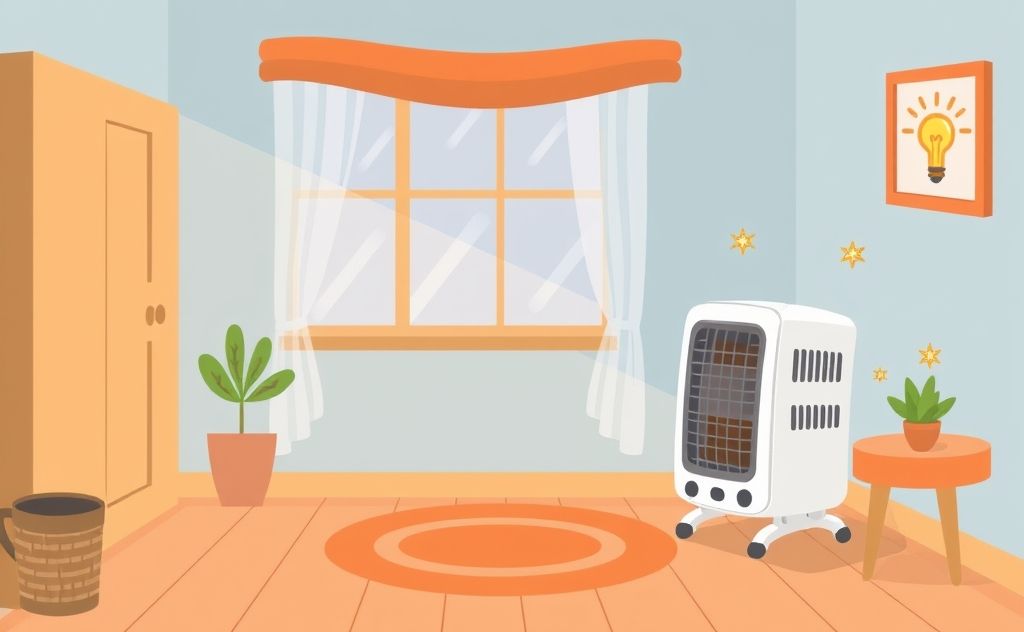Space heaters typically use between 750 to 1,500 watts of electricity, which translates to approximately 0.75 to 1.5 kilowatt-hours per hour of operation, depending on the model and settings used.
Space heaters provide targeted warmth but consume significant electricity. Understanding their power demands helps manage energy costs and safety risks. This guide breaks down wattage, operating costs, and efficiency comparisons.

Space Heater Electricity Consumption
Most residential space heaters operate between 750-1,500 watts:
| Setting | Wattage | Hourly Cost* |
|---|---|---|
| Low | 750W | $0.10 |
| High | 1,500W | $0.20 |
*Based on average U.S. electricity rate of $0.13/kWh
Commercial models may reach 3,000W. Unlike central heating systems that distribute warmth evenly, space heaters concentrate energy in small areas. This makes them inefficient for whole-home heating but effective for personal use.
Comparing Energy Use
Space heaters consume more power than most household appliances:
- Refrigerator: 100-250W
- Laptop: 50-100W
- LED TV: 80-400W
- Space heater: 750-1,500W
According to U.S. Department of Energy, space heaters account for 43% of residential sector heating energy use despite heating limited areas.

Calculating Operating Costs
Your actual costs depend on three factors:
- Heater wattage (check label or manual)
- Hours of daily use
- Local electricity rates
Monthly Cost Examples
For a standard 1,500W unit:
- Occasional use: 2 hours/day = $12/month
- Regular use: 8 hours/day = $48/month
- Constant use: 24 hours/day = $144/month
Compare this to oil-filled radiators which maintain heat longer after turning off, potentially reducing runtime.
Space Heaters vs Central Heating
Whole-home systems typically use 3,000-3,500W but distribute heat more efficiently across larger areas. The cost comparison depends on:
- Home insulation quality
- Number of rooms needing heat
- Local climate conditions
For single-room heating, space heaters often cost less than raising the thermostat for the entire house.
Types of Space Heaters
1. Ceramic Heaters
Use ceramic plates and aluminum baffles. Quick heating with good safety features. Learn about ceramic heating technology.
2. Infrared Heaters
Directly warm objects rather than air. Efficient for spot heating. Discover how infrared heating works.
3. Oil-Filled Radiators
Use heated oil to maintain warmth. Slower to heat but retain temperature longer.
Safety Considerations
Space heaters cause approximately 1,700 fires annually according to the National Fire Protection Association. Follow these precautions:
- Maintain 3-foot clearance from combustibles
- Plug directly into wall outlets (no extension cords)
- Choose models with tip-over and overheat protection
- Never leave unattended or run while sleeping
Maximizing Efficiency
Reduce operating costs by:
- Insulating the room properly
- Using programmable thermostats
- Sealing drafts around windows/doors
- Pairing with ceiling fans to circulate warmth
For alternative heating options, explore non-electric heaters that use propane or natural gas.
